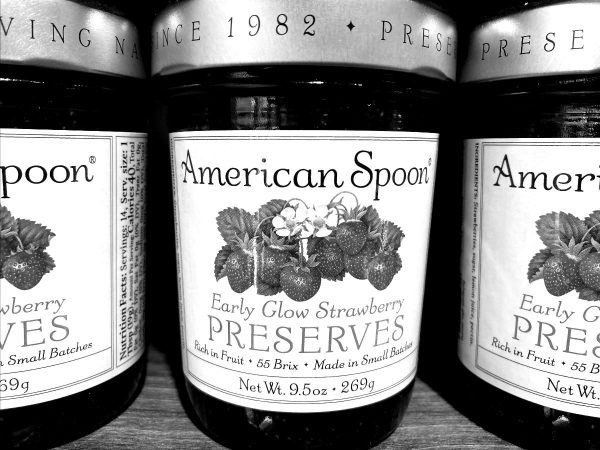More Thoughts on the Positive Power of Marketing
Doing marketing with dignity makes a big difference

In the back of Seth Godin’s book The Icarus Deception, he includes what he calls, “An Artist’s Abecedary.” I didn’t know what the word meant, but as per what I wrote last week, Seth’s work led me effectively towards some good learning. “Abecedary,” I now know, is Middle English for “an alphabet primer.” The one in The Icarus Deception is what Seth put together to guide his readers in making effective and creative work. It begins with “Anxiety” and concludes with “Zabaglione.”
Reflecting a bit after reading, I imagined an addendum. On Seth’s list, “D” is for “Dance,” as in “Dance with fear.” My suggestion is to consider adding “Dignity” to the list. There’d be no need to drop “Dance”—in the spirit of inclusion and also of abundance thinking, it seems like there’s plenty of room for both. I feel a little strange putting this suggestion in writing, but I’m reminded of what Seth himself says of effective art and marketing: “Better opens the door. Better challenges us to see what’s there and begs us to imagine how we could improve on that.” And, upon further reflection, dance and dignity would pretty surely work very well together. In this case, going through the newly-opened door has led me to see the importance of integrating dignity into all our marketing work.
Dignity, whether it’s in dancing, dining, or design, has grown increasingly important to me over the last few years. I wrote about it first in an essay that appears in the “Working Through Hard Times” pamphlet, in which I wondered:
What if we all just committed to treating each other, every day, and in every way, with dignity? At first the question seemed overly simple. Maybe naïve, or even silly. But the more I thought about it, the more it made sense. … Dignity in our relationships with family, with staff, with animals. Dignity in the way we relate to the planet. And maybe most importantly, with ourselves. What if every system we set up in our organizations and in our communities had dignity as a prerequisite? What if everything we did, and every conversation we had, was infused with dignity?
The conclusion I came to was that, without question, doing everything with dignity would most certainly make a really big difference. Then, this past March, when Russia invaded Ukraine, I found myself struggling to process anger, grief, and a whole range of other emotions that blew through me. I felt a deep sense of despair. Sitting here in the safety of southeast Michigan, I was having a hard time finding a way to feel like I was doing something meaningful to help innocent people who were suddenly under attack. Donating money was and is fine, but I felt helpless trying to find a way to contribute more than that.
After a few days, I decided to do something that often offers me a better perspective. I started to study the history of Ukraine—looking, in my Russian history major’s mind, for helpful lessons. It worked. My eyes opened wide a day or two later when I realized that the 2014 Ukrainian Revolution of Dignity could serve as an inspiration to the rest of us. We weren’t going to be able to stop the aggression of Vladimir Putin. What we could do, though, was to work to create a community, or maybe even a country, where leaders like Putin would not likely come to power. I started to see that if we could make our own revolutions of dignity into a daily reality, both we and the world around us would be much better for it.
Picking back up on the idea of marketing as a leadership act that I laid out last week, I want to take the conversation further. Building on Seth Godin’s alphabetic orientation, I’m remembering the transitive property from my eighth-grade math class. In case you forgot it, it goes like this:
If a = b and b = c, then a = c
In this case, if we are committed to making dignity an integral and essential element of effective leadership work, I’m imagining a Transitive Property of Business Philosophy:
If
- “a” represents Good Marketing,
- “b” represents Good Leadership, and
- “c” represents Dignity …
The conclusion is clear: Good Marketing must also then be based on Dignity. What follows then is a call—as much to myself as anyone else—to make sure that dignity is effectively part of all of our marketing work.
Unfortunately, the two have not historically been all that aligned. Seth Godin says:
Old-fashioned industrial marketing is built around the person who pays for the ads. It’s done to the customer, not for him or her. Traditional marketing uses pressure, bait and switch, and any available coercive methods to make the sale—to land the client, to get the money, to sign on the line that is dotted.
Marketing without dignity, I understand, might seem to many to be more efficient in the sense that catchy slogans could score us a bunch of quick sales. I’ve come to understand over time that what may appear efficient in the short term, can actually be highly ineffective, even very unhealthy in the long run. Gaining sales while eroding the integrity of our culture and our ethics may pay next week’s bills, but we will pay the price later in the form of diminished dignity. It’s what business writer Fred Reichheld calls an addiction to “bad profit.” We get used to getting our regular financial fix, so even though we know it’s not great, it’s increasingly hard to quit. Sales increase, but our spirit suffers, both for the one being marketed to, and also for the one doing the marketing. Debbie Millman, one of the world’s leading experts in branding, a former partner in Sterling Brands, and author of the beautiful and insightful new book Why Design Matters, shares how even she struggled with this in her past:
I had achieved a great deal, but there was an echoing vacuum of meaning and purpose in my life. I was consumed with the business of my work—shelf-presence and statistical significance, benefit violators, and back-of-the-pack romance copy. … At one point I was sure I had worked on at least 25 percent of everything you saw in the supermarket or drugstore. After nearly a decade at Sterling I began to wonder if I had lost my creative soul or, at the very least, abandoned it to my professional ambition.
Effectively integrating dignity into all our marketing does the opposite. In slow, steady ways, the lives of those of us doing the work and those who are on the receiving end are made a bit better. What we put out in the world—both energetically, economically, and artistically—will for better and/or worse, bounce back at us.
If you want a good example of manipulative marketing, check out Laura Shapiro’s superb Something from the Oven: Reinventing Dinner in 1950s America. In her book, she tells the story of how marketing was used—deceptively—to convince American women to shift to pre-packaged foods rather than buying fresh and cooking from scratch as most had done for centuries. The approach was to show that “most women were already doing it.” After all, who wanted to fall behind the times? The results, as you will likely know, were statistically enormous; I grew up eating boxed Kraft macaroni and cheese, Mrs. Paul’s fish sticks, Pop Tarts, Tang, and Twinkies. Sales of these industrial products increased dramatically but, unnoticed by most at the time, the dignity of the food, the people who make it, and American cuisine, dropped way down. Clearly, I survived and went on to eat artisan food every day. The American food system, though, is still trying to recover.
The idea of weaving marketing and dignity together is not a new one. Voltairine de Cleyre was one of Emma Goldman’s compatriots in American anarchist arms. Born in Leslie, Michigan a year after the Civil War ended, she died 110 years ago last month. In the brief 45 years she had on the planet, de Cleyre wrote a wide range of essays and poetry. Emma Goldman called her, “… the most gifted and brilliant anarchist woman America ever produced.” Like Emma, she wrote extensively and forcefully in favor of women’s rights: equality in marriage and economy, birth control, and civil rights. Dignity was an equally common theme in her work. As she wrote: “I would have men invest themselves with the dignity of an aim higher than the chase for wealth … not for a day, nor a year, but for a lifetime.”
Last March I wrote about six elements of dignity in daily action, which in Voltairine de Cleyre’s context, can help us make dignity a reality for the rest of organizational lives:
Honor the essential humanity of every person we interact with
No matter how “mass” our marketing is, it’s imperative that we remember that we are speaking to real people. The idea, as I’ve come to see it, is never to diminish or dumb down. Rather, marketing with dignity means uplifting and including, helping people feel more themselves rather than feeding their fears of what could go wrong, or even worse, what is “wrong with them.” This excerpt is from our 2032 vision (the complete vision is in the new “The Story of Visioning”):
While other businesses are using technology to offer fast and easy transactions with little human contact, we are finding ways to use technology to provide the Zingerman’s Experience. Our guests feel seen, known, and heard while still receiving easy and speedy service. Small considerations, small courtesies, and small kindnesses, habitually practiced, day in and day out, build the experience of great service in our many different business contexts. We make meaningful differences in people’s lives, one interaction at a time.
We are well known for our staff’s empathy and attention to detail when helping people. We engage with each person, open-minded, ready to serve them as they would like, and honoring their uniqueness.
We certainly don’t get it right every time, but we’re very committed to making it happen in our marketing, and in everything else we undertake.
Be authentic in all our interactions
Jazz musician Jacob Collier says, “Even if nobody was listening to it, I’d still be making music.” This, for me, has always been one of the key questions of our marketing work: Does it make me want to buy it? And secondly, would I feel good about the work—design, words, etc.—even if we weren’t actually selling anything? This may seem obvious, but it is clearly not the norm. Most of the marketing world is trying to sell stuff they don’t necessarily believe in. Great art, we know, comes from the heart. Dignity encourages us to be truthful, to take meaningful action, to boldly and beautifully become ourselves—to be true to our values and our vision.
I will never forget the time a very kind gentleman Paul and I met many years ago shared how much he loved our Mail Order catalog. He felt himself a kindred spirit since he had done similar sorts of marketing during the course of his career. “What you guys are doing is amazing. Congratulations. It’s fun to do it too. I just love making up those stories!” I felt suddenly very uncomfortable and unsure of what to say. I wanted to respond with dignity, but at the same time, to uphold my own need to be authentic. “Thank you so much,” I said. “You’re very kind! The thing for us, though, is that we don’t make up the stories. They’re real.”
Speaking of making things up, I nearly missed the most obvious application of this—quite simply, marketing work that does not tell the truth is destructive in every way. The dignity of the consumer, the designer, and the company that sells it are all diminished. This is true whether we’re talking about pierogi or politics. It may net quick results, tap into innate fears, or build false hopes, but in the end of the day the entire ecosystem is eroded. Conversely, authenticity isn’t just good for our souls. It also attracts good business. Ji Hye’s devotion to traditional Korean cooking at Miss Kim is one of many ZCoB examples of this in action. Paco Underhill, whose book Why We Buy was a big influence on us many years ago, writes, “Given the chance, people will buy from people who care.”
Make sure everyone has a meaningful say
Marketing, as I imagine it in this context, is a conversation, not a one-way communication. Part of this work, for us, means listening and responding to customer surveys. And when customers complain, we take it seriously (I can think of six quality improvements we’ve made of late all of which came from customer comments). We make a personal connection—I’ve given my email out so many times I’ve long since lost track. In the context of this enews, many of you write to me regularly. I love it. I learn from what you tell me, which means both our ecosystems are benefitting.
Begin every interaction with positive beliefs
Back when we started the Deli in 1982, the general wisdom in the American food world based its work on three deeply-rooted—and we believed false—beliefs:
False belief 1: “Customers can’t really tell the difference between so-so and superb.”
False belief 2: “People won’t pay the price for excellent food—better to sell/serve them something that’s just slightly better than average.”
False belief 3: “Employees don’t care and can’t be trusted.”
As you might imagine, Paul and I rolled our eyes at all three. The beliefs were widely held, but we weren’t buying. Instead, we went in the completely opposite direction. For 40 years now, we’ve based our work on three core tenets. We believe that:
- You really can taste the difference. I’ve always said that I don’t expect everyone to buy our food. If you have three kids, you’ve had a long day, and are already at the supermarket, I don’t have the illusion that you will load everyone back in the car and drive across town to buy your cheese at the Deli. We do, though, want customers to know that what they are getting at the supermarket is likely not as full flavored (meaning, in our world, “complexity, balance, and finish”) as what you might get from us.
- People will gladly pay more for a better product. Everyone? No, of course not. But to Seth Godin’s point, while we are committed to treating everyone with dignity, it has never been our belief that we would sell the most or be the biggest in the marketplace. Those who want better, we’ve found, will happily pay the cost that goes with higher quality. Our work—the core of our marketing—is to help people understand what the difference is.
- Staff are smart! Starting with positive beliefs, we just try to teach the staff everything we know and then, with agreed-upon guidelines and clear expectations, they can go out and do the great work that they do every day.
Nearly 40 years ago, Justin Rashid from American Spoon taught me that while most of the commercial-jam world was just trying to put as little fruit in their products as possible, firming things up instead with pectin, his vision of American Spoon was the opposite. He committed his small company to making preserves with the highest possible fruit content, using the best fruit he could find. One day while we were chatting, Justin said, “Look. If you put a jar of commercial jam on the shelf with 35% fruit content, and it sells for say $5 and then you put our preserves right next to it and they sell for $10, people will nearly always buy the less expensive brand. Unless, he said, you tell them why the $10 jam costs $10!” All these years later, everything we buy from them is excellent and their Early Glow Strawberry remains my favorite of all the preserves we have on our shelves!
Commit to helping everyone get to greatness
Peter Koestenbaum sums this up beautifully when he says, “Authentic selling means helping people, through the products you offer, learn (to be helped) to buy leadership greatness.” To this day, what we do in our work at Zingerman’s is built on this same concept—our marketing work, when we do it well, is all about leadership. The way we market needs to be good leadership in action; what you and others buy from us—whether it’s the Townie Brownies or “The Story of Visioning at Zingerman’s” pamphlet—are all about going for greatness. When we push ourselves to go for greatness, we welcome dignity into our days. And when we help our coworkers and customers go for greatness, we spread the good word even more effectively.
Create a sense of meaningful equity
This is an area in which we have been working hard to do much better in recent years. In the context of unconscious biases—which, inevitably, I/we have—it’s obvious in hindsight we were not doing a good job representing people of color in our marketing. We’ve committed ourselves in the last ten years to doing much better. The same with showing more diverse couples in wedding ceremonies. In the coming years, we will do better still. Small things, we know, make a big difference. This work for me is not about being “pc”—rather it’s about making dignity a real-life practice in everything, and in this case, in our marketing. It matters.
This element of equity presents an interesting paradox to us here at Zingerman’s—we sell costly artisan handmade products that we know will not be affordable for everyone. Even if not everyone can afford what we have, we can commit to:
- Never treat anyone with less dignity because they’re not spending a lot.
- Never treat anyone poorly because they prefer to buy, eat, or shop somewhere else.
- Work to rebalance the greater ecosystem so that over time more people can buy what we sell.
Doing this work in this way is not a quick fix. While Super Bowl ads may, I suppose, drive a lot of quick business, Seth Godin says it’s “Time to stop looking for shortcuts, and time to start insisting on a long, viable path instead. …This approach is simple, but it’s not easy to embrace, because it involves patience, empathy, and respect.” And dignity.
These six elements, I’ve come to see, can give us a quick and effective checklist to guide us, every day and in every way, as we do our marketing work. Debbie Millman’s new book, as just one example, shows how all six elements can be put into meaningful action. Consistently marketing with dignity may not get us rich quickly, but it will make a marked difference in the long-term health and well-being of everyone connected to our business.
Last month I wrote about Lithuanian artist and author Monika Vaicenavičienė and her magical book What Is A River?. Her art inspired me to connect the idea of rivers as the metaphorical equivalent of history in the organizational ecosystem metaphor. On the first page, she starts her story with an afternoon spent with her grandmother by the river. She writes,
I am picking flowers. Each flower has a meaning.
Daisies represent love; shamrocks, health; reeds, resilience.
That’s what my Grandma says. I’m going to make a wreath.
At the end of the book, she says,
I finish my wreath and let the current carry it away.
What Vaicenavičienė has described so beautifully, in a sense, is what happens in marketing. Many might think, “This marketing piece will just be out there for a few days and other than generating sales it doesn’t really matter.” But to Vaicenavičienė’s poetic point, we don’t really know where our messages, our newsletters, or our social media posts will go over time. Doing a better job showing diversity in our wedding ads, we have happily and successfully made for amazing wedding celebrations for many couples. Being authentically vulnerable, holding to our humanity, sharing our passions, our fears and our beliefs in caring ways can make for very effective marketing. By speaking in depth, and with dignity, about our products and purveyors, we elevate them to ever higher levels of excellence, improving eating and ecosystems in the process. In that sense, I hope in my heart that the essays in this enews, as one tiny part of all the marketing work we do here in the ZCoB, will prompt positive things. If I do my work moderately well, maybe they will contribute positively to the lives of the people who read them. And, I hope, they can go gently down the river to prompt new insights and ideas in the minds of others, in the same way that Seth Godin’s good work has done for me.
In the spirit of which, after writing about rivers and history and Monika Vaicenavičienė’s book last month, Tom van Vorhees, from Rogue River Creamery (check out their great cheeses at the Deli and Cream Top Shop) wrote me to say how much the piece got him thinking. And then he returned the favor, sharing an additional perspective I hadn’t considered:Someone is always downstream of us, so setting them up for success is the key. We never get to share the last moment of our customer interaction since it happens at their home or party; it’s so important to send them down stream with thought and care.We don’t really know where our marketing will go. Some marketing, I know, will make waves. Other times, what we are most excited about washes up on the shore a few feet from where we set it into the river of history. After all, Vaicenavičienė writes, a river, like history, is “a story without an end.” Marketing becomes part of our history as it continues downstream. We can choose, in that work, to put either indignity or dignity into the river of our organizational history as it flows past. If we do our marketing well, with dignity at every turn, we can thoughtfully send some lovely wreaths down the river, sell some good food, give great service, and make a meaningful, dignity-based difference in the process.
Want more from Ari?
Sign up for Ari’s Top 5 e-newsletter and look forward to his weekly curated email—a roundup of 5 Zing things Ari is excited about this week—stuff you might not have heard of!




Zingerman’s Art for Sale